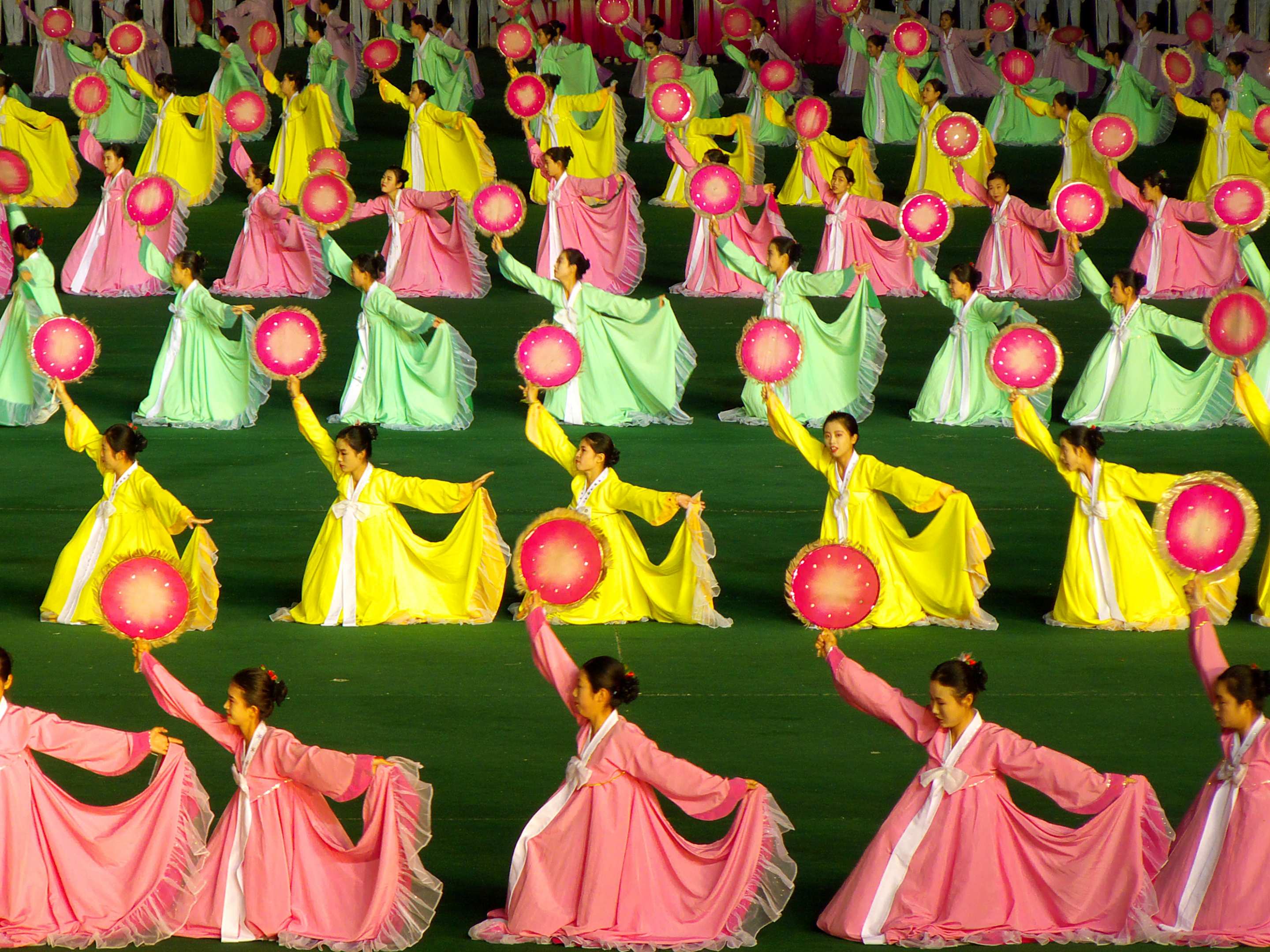Children the key to North Korea's power
As North Korea prepares to mark the 70th anniversary of its ruling Korean Workers' Party on 10 October, a University of Sydney PhD student believes the state is maintaining strength from an unlikely source: its children.

North Korean school children performing at the Arirang Mass Games. Image: Flickr/Russavia.
Doctoral candidate Christopher Richardson has just completed his thesis on the changing nature of childhood in North Korea. Examining more than 70 North Korean children’s books, his work explores how the state uses children’s culture to create politically useful citizens.
"From the moment children are born, the first words they are taught are words in worship of the Kim family. From the time they are in kindergarten they are taught to hate the United States, Japan, and South Korea, and they are taught to love the leaders," Mr Richardson said.
"North Korean childhood is perceived not as a protected pre-political phase in individual human growth, but as a foundational stage in the construction of revolutionary consciousness, fostering national cohesion, ideological purity, and reverence for Kim Il Sung, Kim Jong Il, and Kim Jong Un.
It's like a combination of home schooling and the Jonestown cult, mixed in with the kind of Stalinist or Maoist cult personality on a scale that even they were incapable of achieving
With continued flare-ups in the region and tensions building over North Korea’s planned celebrations this weekend, predicted to include a satellite launch, it is becoming increasingly important to expand the discussion on North Korea to include how children figure in official state policy, Mr Richardson said.
"North Korea has survived so much longer than anyone anticipated: its Soviet sponsors collapsed in 1991; its Chinese sponsors have capitalised and reformed beyond all recognition. Yet North Korea has endured despite its poverty, famine and systemic failure," he said.
"At the absolute core of this is the role of children's culture. North Korea has managed to securitise culture, maintain an ironclad grip over its information environment, and to create a self-regenerating revolutionary culture in a way that China and the Soviet Union ultimately failed to do."
As an author of children's literature himself, Mr Richardson understands better than most the importance of books in shaping young minds. His research analysed state-sanctioned cultural products for children such as cartoons, books, songs and movies that are written by the government or in the leaders’ names.
Changing childhoods
Yet the state's influence over its people appears to be waning, with younger North Koreans now exposed to Disney films as well as state propaganda, Mr Richardson's research shows.
"Increasingly you hear about North Korean children illegally watching Frozen in their apartments. There's a separation now of public and private selves: they have to enact this perfect revolutionary saint when they're in public and at school, but they're going home and watching Disney movies or James Bond.
"It's unsustainable in the long term but the state doesn’t seem to be willing to budge."
With more information flowing into the country, Mr Richardson expects a shakeup in the way the next generation of North Korean children will be socialised, with implications for the future of the state’s revolutionary agenda.
"For the first time since the 1990s, North Koreans are accessing foreign literature and foreign media. They are starting to question their system.
"Is there any way for the state to recover the mastery of its information and cultural environment it's had for 50 years, or is the system effectively doomed to collapse when the current generation of children comes of age?"
Related articles
Between the South China Sea and human rights
Prime Minister Turnbull's decision to criticise China on the South China Sea issue, but avoid touching on the human rights issue, can be seen to be in the best interests of Australia, writes Klaus Raditio.
